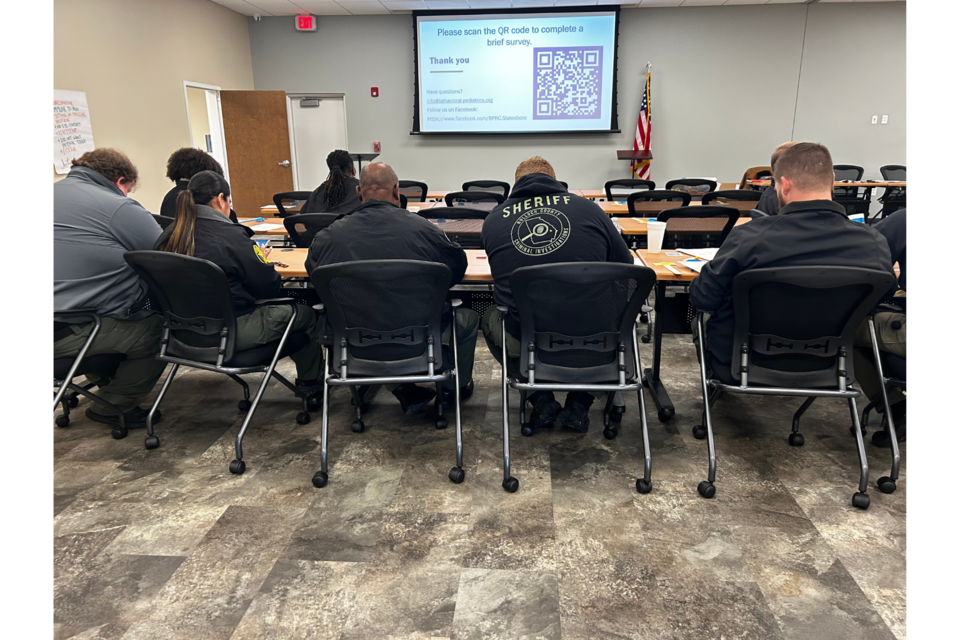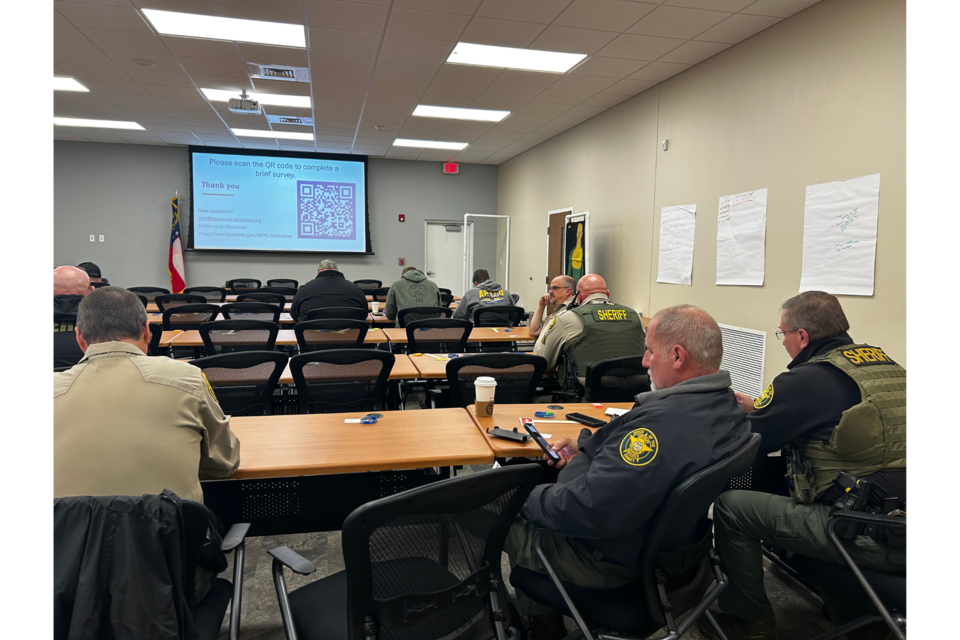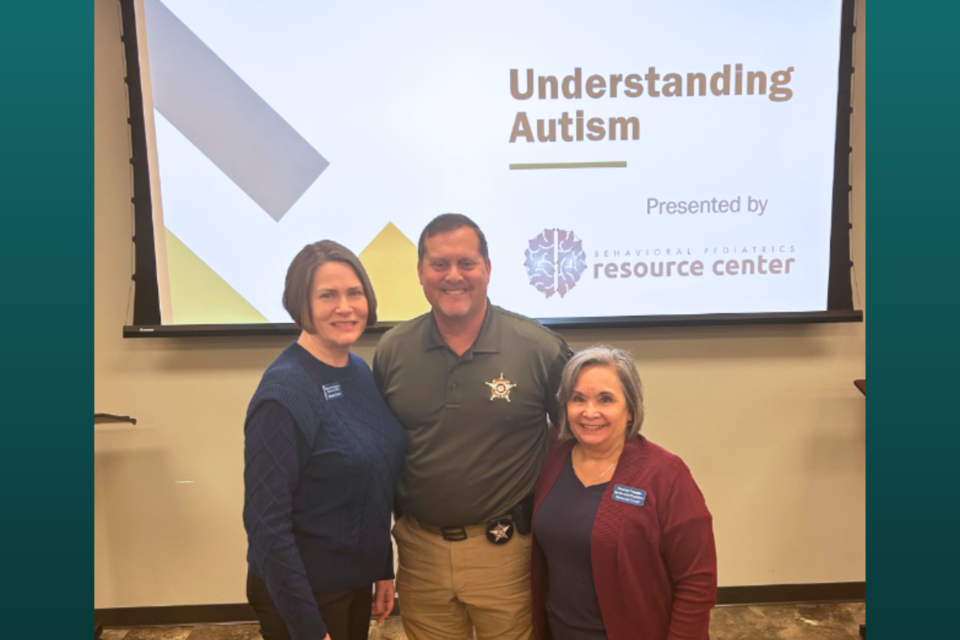Dr. Michelle Zeanah and Sharon Draeger of Behavioral Pediatrics Resource Center are committed to alerting law enforcement, firefighters, and other essential community personnel to the presence of people with autism.
"Dr. Zeanah and I have talked, probably for the last two years, about finding a way to help identify people in vehicles and in homes that have autism and how we could get the Sheriff's Department and the police department involved in that," Draeger says.
After extensive research, Draeger discovered that other states who had implemented the decal program for autism awareness found the information was imperative for their officers. Once they were awarded a grant that would make the sessions and decals possible, Behavioral Pediatrics was prepared to bring the message about autism to the area's law enforcement, whose positions ranged from detectives and deputies to correctional officers and even the sheriff.
"Sheriff [Noel] Brown sat in on one with us," Draeger says. "We've gotten some great reviews about the trainings."
A former elementary school principal in Chatham County, Draeger intimately understands the need for autism awareness. She credits the special education teachers at West Chatham Elementary School with giving her the passion for educating everyone she meets about the disorder. A few years later, her daughter led her to an opportunity that would become a second career.
"When I talked with Dr. Zeanah about what she wanted to do with her nonprofit, it really moved me that I was sent on a mission. I still believe that God sent me there to continue working for people with autism," Draeger muses.
In 2016, Zeanah transitioned from her position at Bulloch Pediatrics Group to specialize in behavioral pediatric services. Many of her patients have ADHD or autism spectrum disorder, and some have both. Zeanah uses an "inside out" approach, which includes collaborating with patients and their families for the best social and academic outcomes.
She has a gift for understanding children and their perspective and uses this to effectively treat her patients. As part of her practice, she also operates a non-profit called the Behavioral Pediatrics Resource Center. Its mission is "to educate and raise awareness about autism, ADHD, and anxiety through outreach, training programs, and online resources to provide valuable information and support."

The clinic and non-profit work hand-in-hand to support and educate, through efforts like the law enforcement training.
The clinic's areas of expertise include a variety of diagnoses that prevent children from living their best lives. One key piece of information, though, is that many arrive at their practice with no diagnosis, which exacerbates an already challenging situation for patients and their families.
"I told everybody in the training, 'Not everybody you're going to come across is diagnosed with autism and that's part of the problem," Draeger explains. "A lot of people don't get diagnosed young and then they grow up and it doesn't go away. If they don't have that support early on, then some of characteristics, some of the behaviors, will manifest themselves and they'll still be there or sometimes worse."
Something that may not affect a neurotypical person, such as flashing lights, may be a trigger for a person with autism. The neurodivergent person may also not understand social practices like personal space when interacting with essential personnel, which could be misinterpreted by law enforcement.
The goal of this initiative is to educate law enforcement and other community helpers with the knowledge to help, rather than hinder, in high-stress situations.
Statesboro Police Chief Mike Broadhead feels the in-depth look at a condition that affects so many in our community will be helpful for everyone.

"We have a number of kids in our community that are on the spectrum," Broadhead says. "For teenagers and young adults that are on the spectrum, understanding how to recognize some of the issues they might be having can help us de-escalate things and not respond as if they are belligerent as much as that they may just not be understanding what's happening."
Statesboro Police Department is scheduled for the training on February 12.
Broadhead urges parents of autistic children in Statesboro to complete a Family Wandering Emergency Plan and either drop it off or mail it to the Stateboro Police Department. This form includes information about the person with autism, emergency contacts, as well as what steps to take if the family member goes missing.
All parties involved agree that awareness is the most important thing.
"Autism can impact both the needs of a citizen and the strategies of law enforcement," Zeanah says. "Awareness is key to getting those needs met."




